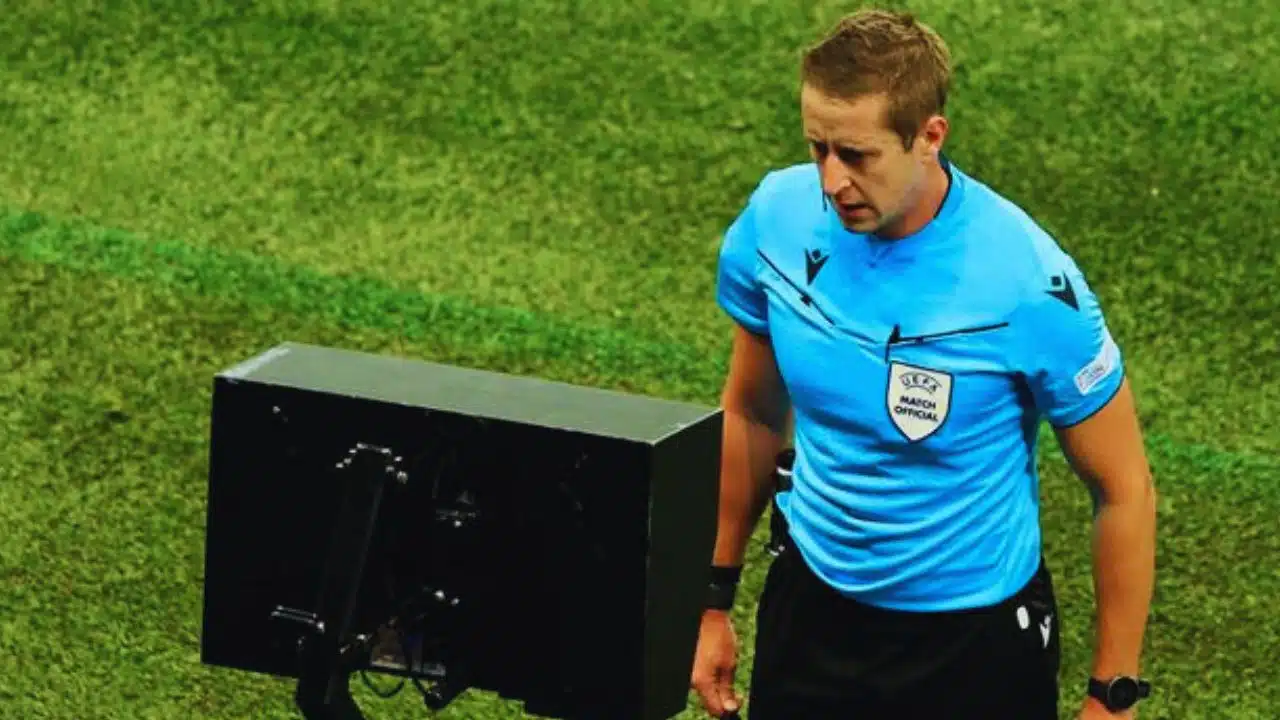Every major international football tournament brings its own innovations. Euro 2024 has continued this trend by introducing advanced technologies intended to refine the game and reduce human error in officiating.
Among these are the ‘connected ball technology’ and the semi-automated offside technology (SAOT), which are designed to assist with handball and offside decisions, respectively.
Advanced Technologies: A Double-Edged Sword
While these technologies aim to improve the accuracy of decisions in the game, they have also sparked controversies, particularly concerning the role of Video Assistant Referee (VAR) systems in football.
The ‘connected ball technology’ enhances the detection of physical contacts, such as handballs, by signaling when a player touches the ball.
SAOT, on the other hand, is designed to speed up offside calls by using a chip inside the ball to track players’ movements, eliminating the need for VAR officials to draw lines manually.
Controversies Surrounding VAR
Despite these advancements, the implementation of VAR has faced significant criticism during Euro 2024.
High-profile incidents have fueled debates over whether the technology is improving the game or undermining the spirit of football.
Belgian striker Romelu Lukaku, for example, had three goals disallowed due to these technologies, with contentious rulings that have been widely debated.
In one instance, teammate Loïs Openda was judged to have made a handball in the lead-up to a Lukaku goal, despite the contact appearing accidental and not affecting the play’s outcome.
In another match, SAOT ruled Lukaku’s goal offside by a marginal decision concerning his toes, highlighting the extreme precision that some argue detracts from the game.
Impact on Teams and Players
Scotland’s campaign at Euro 2024 was notably impacted by VAR decisions. A crucial penalty was not awarded when Stuart Armstrong was fouled, a decision that potentially cost them advancement in the tournament.
The referee in this match chose not to review the pitch-side monitor, a decision that has been heavily scrutinized.
Mixed Reactions from the Football Community
The football community’s response to these technologies has been mixed. Tottenham manager Ange Postecoglou criticized the over-scrutinization of plays, likening it to “turning football into forensics.”
Former Arsenal striker Ian Wright and others have voiced frustrations, particularly regarding the precision with which offsides are now judged, which they feel robs the game of its fluidity and spontaneity.
Subjectivity Remains
A notable incident involving Xavi Simons’ disallowed goal against France demonstrated that despite technological aids, VAR decisions remain highly subjective.
The decision took several minutes and was ultimately based on the referee’s interpretation of player interference, which was widely contested.
As Euro 2024 unfolds, the role of VAR and new technological aids continues to be a hot topic. While these tools aim to bring fairness and accuracy, the footballing world remains divided on their impact.
The challenge lies in balancing technological integration with the preservation of football’s dynamic essence, ensuring that the spirit of the game is not lost to technological oversight.
Whether these tools will be refined or scaled back remains a key issue for UEFA and the broader sports community as they assess the legacy of Euro 2024.





































